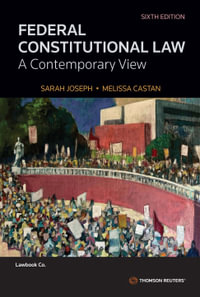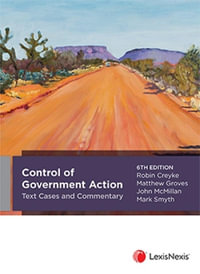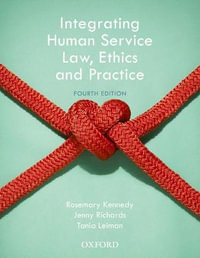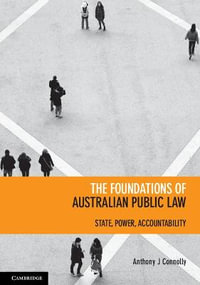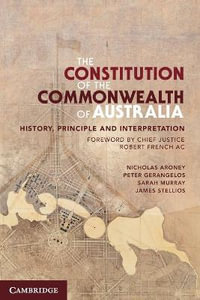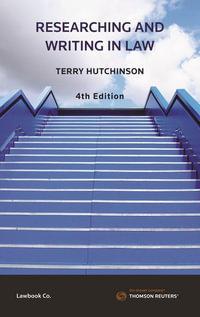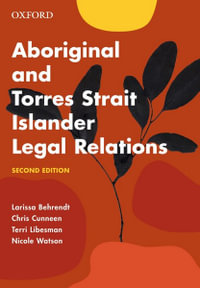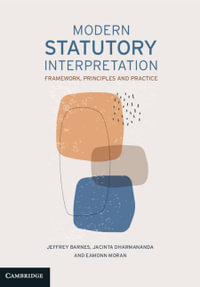In controversial court cases involving civil rights, schools and housing, prison reform, and other social issues, federal district court judges are often called upon to make some of the most difficult judicial decisions. How do these cases arise? How are they prosecuted and remedies fashioned when federally protected rights are violated? How can relations between federal judges and state and local officials be improved?
This book--the first to attempt to look at such cases from the judge's point of view--examines some of these questions through five comparative case studies involving open housing in a Cleveland suburb, school desegregation in Detroit, mental health reform in Alabama, prison conditions in Ohio, and alleged police misconduct in Philadelphia. Cooper presents a clear overview of the remedial decree process and prefaces each of the case studies with a full chapter that sets the case in its legal, administrative, and political context.
Taking a close look at the interactions between federal district court judges and state and local officials, this volume produces a model of remedial decree litigation that challenges widely held assumptions about the role of district court judges in such controversial cases.
Industry Reviews
"Cooper makes a meaningful contribution to the literature by providing for policymakers and students of legal studies an in-depth examination of five interesting, representative, and important cases."--Criminal Justice Review
"A refreshing change from the customary form of basic legal texts. The subjects and cases are well selected and interesting"--Constitutional Commentary
"An ambitious book in design, in methodology, and, by and large, the ambition is fulfilled....An important book and a splendid example of empirical political science holding legal philosophy in check."--Public Administration Review
"Important...a work of meticulous scholarship that will have to be confronted by those on all sides of the judicial capacity and related controversies....Destined to become a classic in the judicial administration literature. This is a book for the classroom as well as for judicial politics experts."--American Political Science Review
"A major contribution to public law literature on United States district courts....Cooper brings [cases] alive with his vivid and sometimes poignant descriptions of the actors and politics involved in each dispute. His portraits of the agonizing role played by the courageous judges in these cases are especially memorable....This work provides an invaluable empiricle framework for improving our understanding of the less glamorous, yet so powerful trial courts
in the federal judicial system."--Political Science Quarterly
"Well-researched....Well-documented, his arguments are logical and his perspective on the cases offers us a new look at old problems. Anyone interested in the impact of court decisions should not miss this book."--Judicature
"Excellent....Undergraduate and graduate courses should profit enormously from this detailed, learned account of the federal courts and policy decisions. The text is very well written and clearly presented. The organization is strong and sensible with each of the five in-depth case studies following a chapter-length discussion of the particular policy area and previous court actions. The intricacies of each case are set out in ways even the lay reader can
follow and understand."--Harold W. Stanley, University of Rochester
"A discerning, well-constructed book on a subject of increasing interest....Especially timely because of the national debate over the role of judges."--Lloyd Musolf, University of California at Davis
"The richness of description in these five case studies of institutional reform litigation gives a wonderful and true-to-life characterization of these litigation processes. I intend to use it with undergraduate and graduate classes in the American judicial process."--Bradley S. Chilton, University of Southern Mississippi
"A most readable, entertaining and informative book. The case studies are well-chosen, and students of the legal process should find much to discuss within this book."--Robert Langran, Villanova University
"A high-quality book. I welcome a sound theoretical contribution to the literature regarding the federal district courts."--Charles M. Lamb, State University of New York, Buffalo
"An interesting approach with two unusual differences: emphases on policy-making in lower federal courts and a look at judges under extreme stress."--William C. Baum, Grand Valley State University
"A valuable addition to the literature, and carried out in a first rate fashion."--John A. Morgan, Jr., George Washington University
"The discussions of the law and the companion case studies are carefully constructed."--Choice

